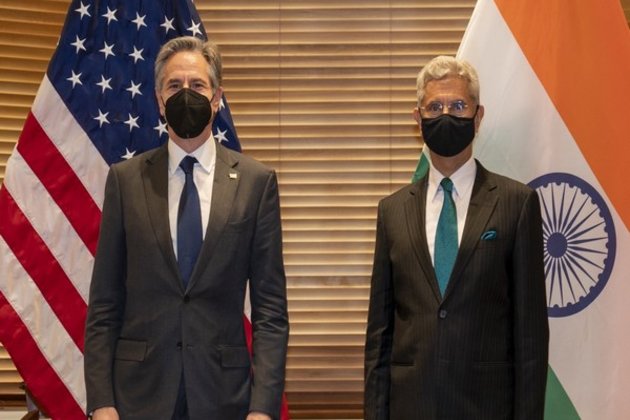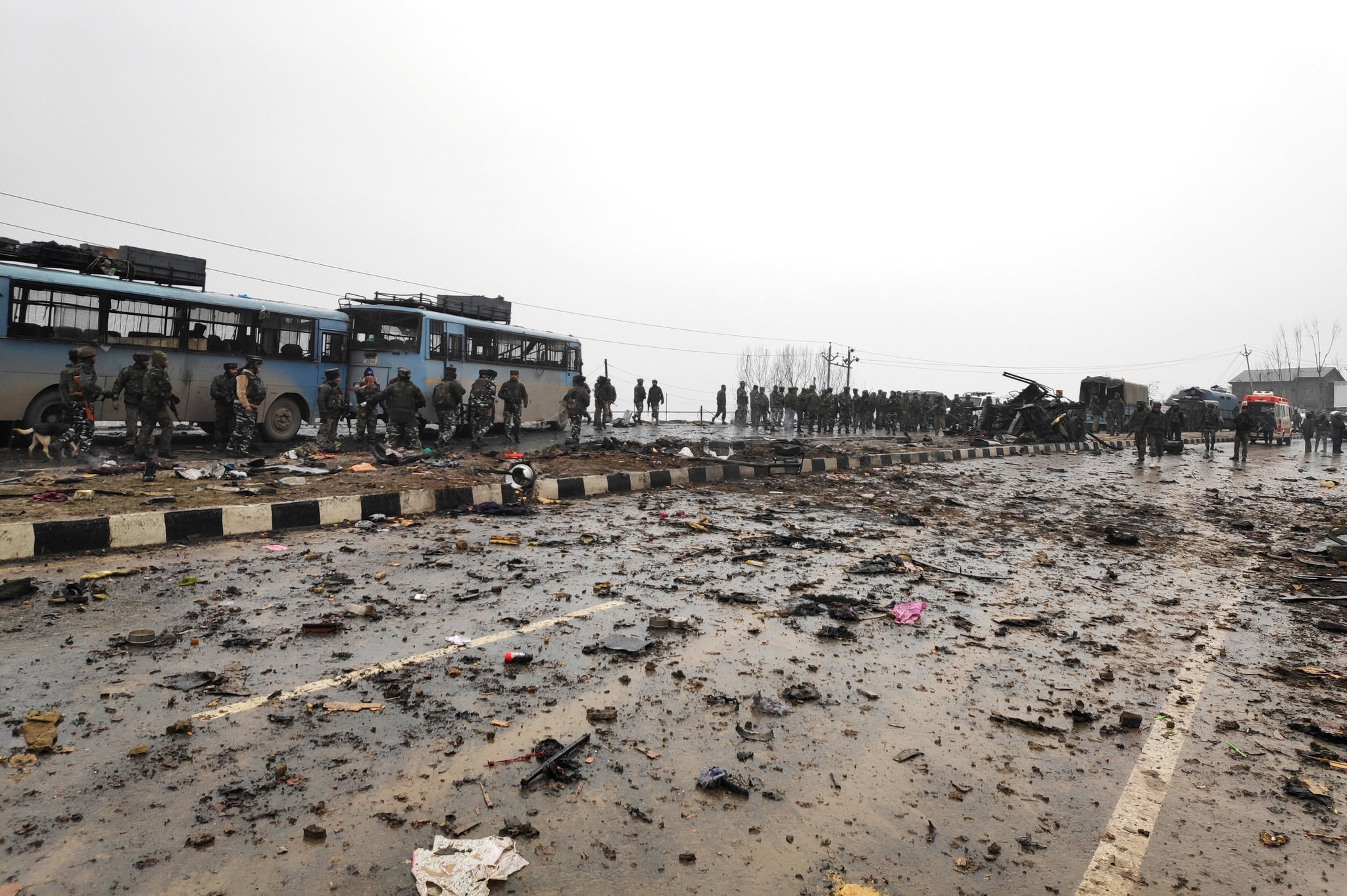


External Affairs Minister S. Jaishankar addressed the Parliament regarding the deportation of over 100 Indian nationals from the US, assuring that the government is actively engaging with the US to ensure the deportees are not mistreated. He also emphasized the need for cracking down on the illegal immigration industry and taking necessary action against agents based on information provided by the deportees.
Deportation of Indian Nationals from the US: A Glimpse into the Issue
The recent deportation of over 100 Indian nationals from the United States has drawn attention to the issue of illegal immigration and the challenges faced by Indian citizens abroad. External Affairs Minister S. Jaishankar has assured the Parliament that the government is actively engaging with the US to ensure that the deportees are not mistreated.
Background
Illegal immigration has been a prevalent issue in the US for decades, with a significant number of Indians attempting to enter the country illegally in search of better economic opportunities. However, the Trump administration has taken a more stringent stance on immigration, cracking down on undocumented immigrants and increasing deportations.
Recent Deportations
In recent months, the US has deported over 100 Indian nationals, including students, H-1B visa holders, and asylum seekers. Many of these individuals claim to have been mistreated by US authorities, including being held in detention centers for extended periods and being denied access to legal counsel.
Government Response
The Indian government has expressed concern regarding the treatment of Indian nationals deported from the US. External Affairs Minister S. Jaishankar has stated that the government is actively engaging with the US authorities to ensure that the deportees are treated fairly and their rights are respected. He has also emphasized the need for cracking down on the illegal immigration industry and taking necessary action against agents who facilitate illegal entry.
Top 5 FAQs and Answers
1. What are the reasons for the deportations?
The US has deported Indian nationals for various reasons, including visa overstays, fraudulent visa applications, and criminal offenses.
2. How are the deportees being treated?
Many deportees have reported being mistreated by US authorities, including being held in detention centers for extended periods and being denied access to legal counsel. The Indian government is working to ensure that the deportees are treated fairly.
3. What is the government doing to address the issue?
The Indian government is engaging with the US authorities to address concerns regarding the treatment of deportees. The government is also working to crackdown on the illegal immigration industry and take action against fraudulent agents.
4. What can Indian nationals do if they are facing deportation?
Indian nationals facing deportation should contact the Indian embassy or consulate nearest to them for assistance. The embassy or consulate can provide legal advice and support.
5. What are the long-term implications of the deportations?
The deportations could have long-term implications for India-US relations and the movement of Indian professionals between the two countries. The Indian government is working to mitigate the impact of the deportations and ensure that the rights of Indian nationals are protected.

The Indian National Congress (INC) has announced its plans to launch a month-and-a-half-long campaign in Jammu and Kashmir on April 22. The purpose of the campaign is to demand the restoration of statehood and to further the “Save the Constitution” movement. With the recent appointment of Syed Naseer Hussain as the new J&K in-charge, the party hopes to regain its lost support in the Union Territory. This campaign comes at a crucial time, as former supporters of the Congress leader Ghulam Nabi Azad have recently dissolved their party, raising questions about their political future. The Congress hopes to use this opportunity to highlight the BJP's failures in empowering elected governments and its betrayal over statehood.

Thousands of citizens in Pune are rallying together through an online petition to demand the protection of their city's hills and hill slopes from any construction. The petition is addressed to the former Pune Municipal Commissioner and Chairman of the state-appointed Committee on Bio-Diversity Park and Hill Top Hill Slopes. The citizens are concerned that the committee's review may result in allowing construction on the hills, while strict measures have already been mandated by the government to prevent it. The citizens stress the importance of preserving these natural areas for the city's ecological balance and urge the government to uphold its promise to future generations.

After the devastating terror attack in Pahalgam, Jammu and Kashmir, India has suspended the 1960 Indus Waters Treaty with Pakistan. This decision was made during a key meeting chaired by Union Home Minister Amit Shah, with discussions on potential actions being taken against Pakistan. As tensions between the two countries continue to escalate, Indian leaders have condemned Pakistan for their involvement in the attack and have vowed to take strong measures in response.

The Indian Army made its first major move since the Pahalgam terror attack on April 22, as they killed top Lashkar-e-Taiba (LeT) commander Altaf Lalli in an encounter in Jammu and Kashmir's Bandipora district. The security forces are on the hunt for the terrorists responsible for the brutal killing of 26 civilians and have launched a massive anti-terror operation. In other developments, Indian Army Chief General Upendra Dwivedi visited Srinagar for a security review meeting and the authorities demolished the houses of two suspected terrorists involved in the Pahalgam attack.

In a hearing at the Supreme Court, the bench rebuked Congress leader Rahul Gandhi for his "irresponsible" comments about freedom fighter Vinayak Damodar Savarkar. The judges highlighted the need to show respect for India's freedom fighters and questioned whether Gandhi was aware of his grandmother and Mahatma Gandhi praising Savarkar. The court also stayed an Allahabad High Court order that refused to dismiss a lower court's summons against Gandhi over his alleged remarks about Savarkar.

The Supreme Court has stepped in to warn Congress MP Rahul Gandhi over his comments about India's independence activist Veer Savarkar, staying a trial court's summons to the politician. The top court emphasized that Savarkar is a highly respected figure in Maharashtra and stated that no one would be allowed to make derogatory remarks about freedom fighters. The court also pointed out that Gandhi's family has had a history of praising Savarkar and Gandhi himself has been warned that the court will take suo motu cognizance of any such remarks. Additionally, the article also mentions an attack in Jammu and Kashmir that has led to heightened tensions between India and Pakistan.

In a successful operation by the security forces, a Lashkar-e-Taliba (LeT) terrorist associate, identified as Altaf Lalli, was killed in an ongoing encounter in the Bandipora district of Jammu and Kashmir. The encounter began after the security forces received intelligence about the presence of terrorists in the area. Two security personnel have also been injured in the exchange of fire and are currently undergoing treatment at a nearby hospital. The clash highlights the continued efforts of the security forces to combat terrorism in the region.

The Telangana-Chhattisgarh border is a hotbed of tension as security forces step up their efforts to root out Maoist activity from the region. Top Maoist leader Hidma is the target of current high-security operations, with forces strategically advancing through previously inaccessible areas. With mounting pressure, sources indicate that the hold of the Maoists in the region is gradually weakening, making for a tense and critical situation.

As the nation grapples with the aftermath of a terror attack in Pahalgam, security forces are undertaking a massive operation in the dense Karregutta hills forest to eliminate the heart of Naxal command. This operation, involving 7,000 personnel and cutting-edge technology, aims to strike a blow at Naxalism by targeting top leaders of the PLGA Battalion No. 1. This bold move by the CRPF, with the Director General personally overseeing the operation, marks a turning point in the fight against Maoist insurgency. With five Naxals already killed and more likely to come, the operation is being hailed as a decisive victory and could potentially spell the end of Naxalism in India.

The US Government has publicly criticized The New York Times for its reporting on the recent terror attack in Pahalgam, Kashmir, calling attention to the difference between the newspaper's use of "militant" instead of "terrorist." This choice of words is not only misleading but also minimizes the severity of the attack, which was claimed by a Pakistan-based group with links to Lashkar-e-Taiba. The US House Foreign Affairs Committee took to social media to point out the error and highlight the real nature of the attack, noting that it has significant implications for regional security.